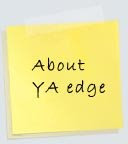It’s hard to look in your drawers and see stories you poured your heart into just sitting with no future. Like every writer who has been working on the writing craft for many years, some stories just never see the light of day again. I have quite a few of them. I’m sure we all do.
If you’re like me, you feel a pull to try and do something with them.It's as if they've come to life and are calling your name. I call them Story Zombies. The work that just won't die. As the years pass and the dust builds, you think to yourself "Maybe if I just rewrote a few parts" or "If I wrote it in a different tense or for a different audience." I had that very thought just last week. I'm one of those people who tend to remember their stories way better, or more complete than they actually are. That's when I pick it up and start reading. It's good to read them. Rewrite them? I'm here to advise you, don't do it!
Story are like a puzzle, each scene making up a piece. As hard as it is to write a 1st draft, it's that much harder to take an old story and make it into something that it's not. You can fit a corner piece into the center of the puzzle and expect the picture to make sense. In my opinion, it's always easier to take your initial idea, the part that may work for your new story and write it from page one.
There are always exceptions to the rule. I'm sure quite a few books came about from an author re-vamping an old story that sat under their bed for years. I'd love to hear of a few if anyone knows of any offhand.
So, despite my old stories awakening, hoping to be Frankensteined to life once more, I will take what I learned from writing them and apply it to a new fresh set of characters. The lesson was learned. Those stories exist so that I can go back when I'm having a bad day and remember just how far my writing as come.









